2018 Civic Si Top Speed
►Honda puts the Civic through a 'Minor Model Change
►Tweaked styling plus updated interior
►New range-topping EX Sport Line trim tested
When Honda launched the 10th-generation Civic back in 2017, buyers and journalists (but mainly journalists) moaned like stink that the 'buttons' lining the side of the infotainment display were touch-sensitive, and the volume control was an awkward slider.
Ready for 2020, though, the facelifted model replaces these with physical buttons and a proper scroller knob for the volume control. And Honda UK even commissioned an over-dramatic press shot to emphasise the fact. It's got the measure of us, and we applaud it for that.
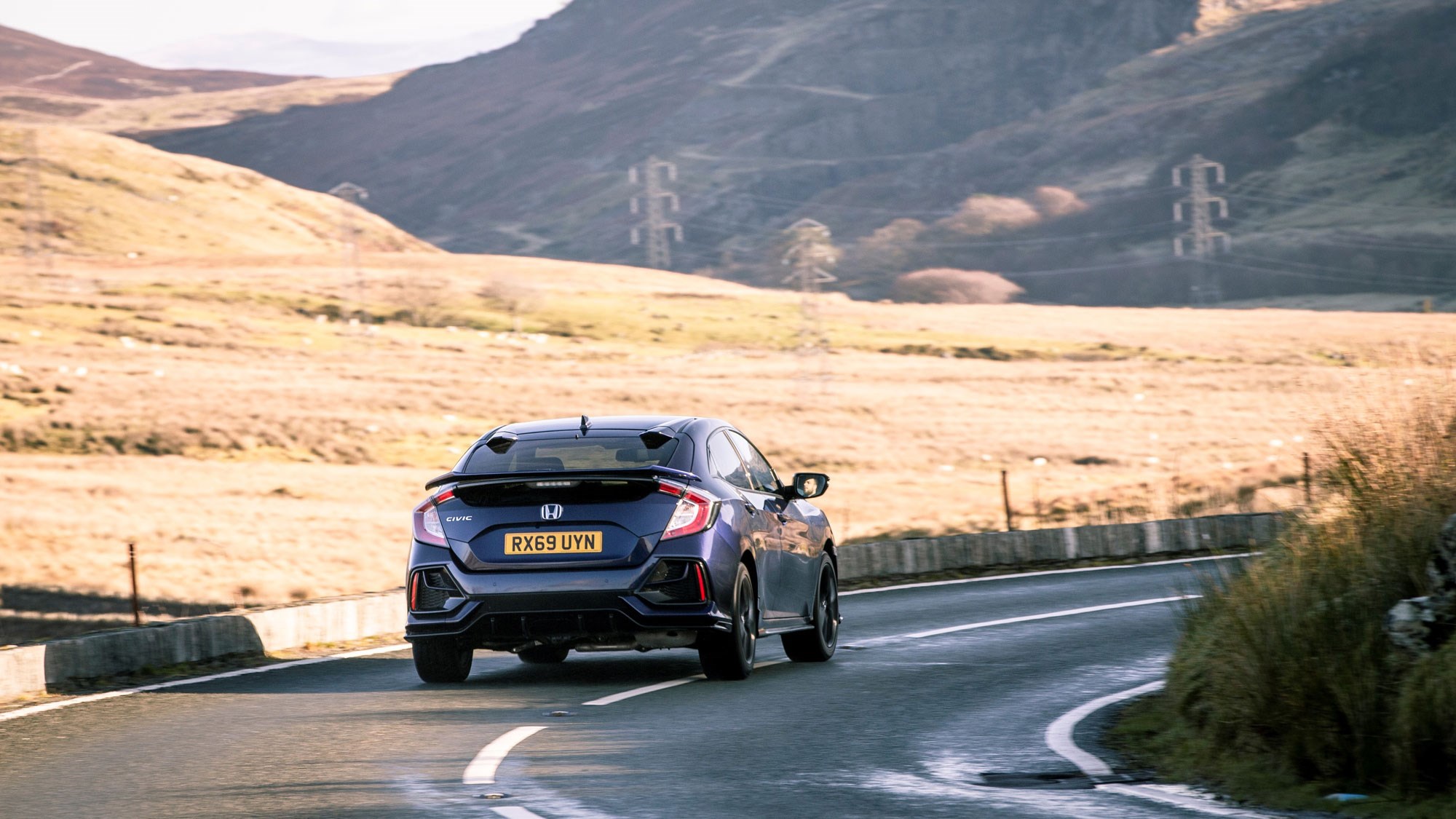
Anyway. There's slightly more to the Civic's MMC (Minor Model Change – corporate-speak for very mild facelift) than just a twisty dial on the dashboard.
So what else is new?
You'd be hard pressed to notice the changes, inside or out. The bumpers have been slightly restyled front and rear, the headlights are a little slimmer with redesigned DRLs.
Certain models also get a new design of 17-inch alloy wheel. Meanwhile, inside you'll find the aforementioned knob, plus additional buttons for the climate control panel – meaning you don't have to delve into the touchscreen menus as often as before.
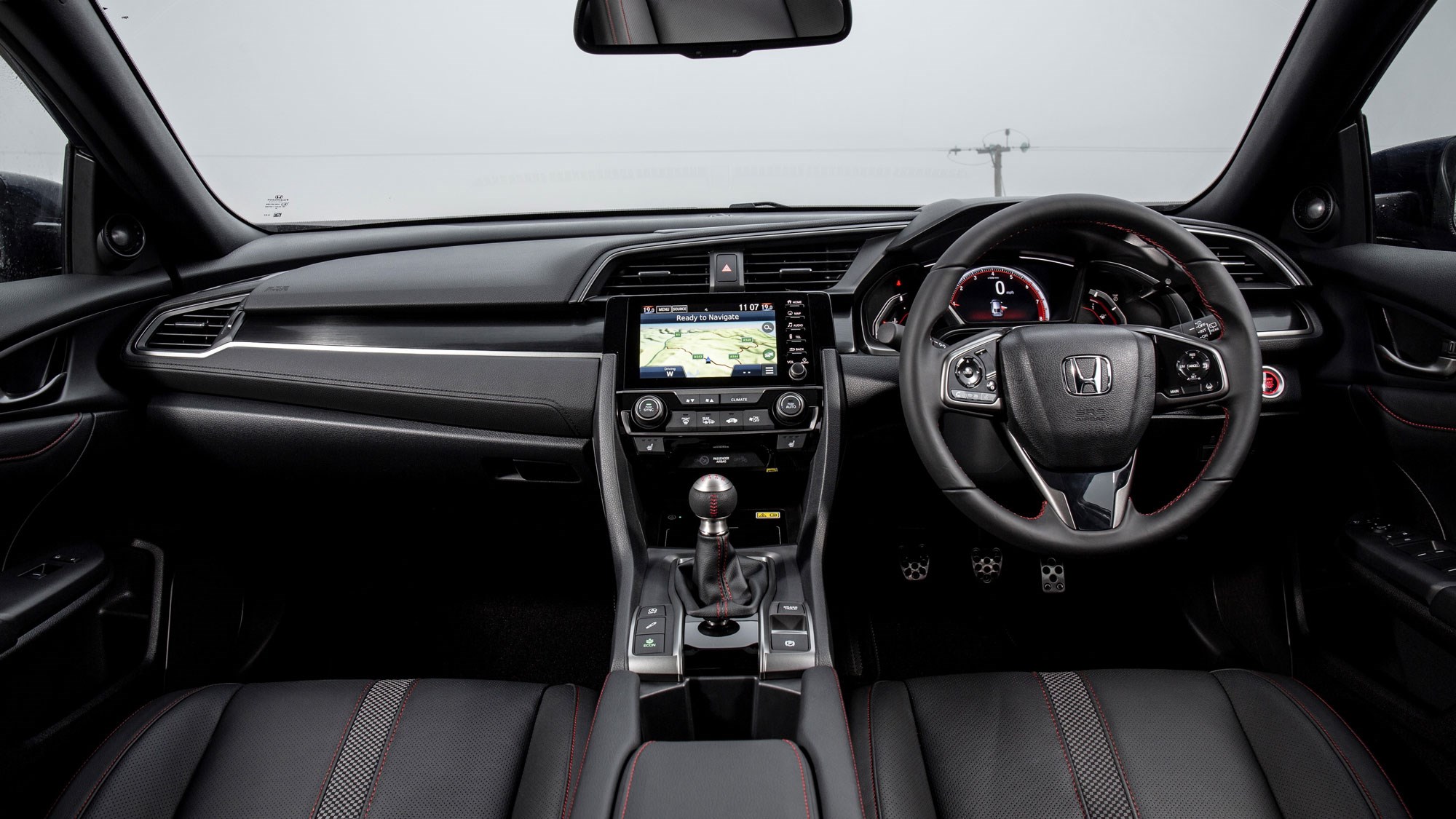
Certain models also get electric adjustment for the seats for the first time, something that was missing from range-topping models before.
Speaking of the range, a new trim level has been introduced. Called EX Sport Line, it sits on top of the regular EX model but brings a little of that Type R bling in the form of a lower body kit, big alloy wheels and a truly chavtacular rear spoiler sitting in the middle of the split rear screen. It's Honda's take on an S-Line or AMG Line. 'Cause it's got Line in the name, see?
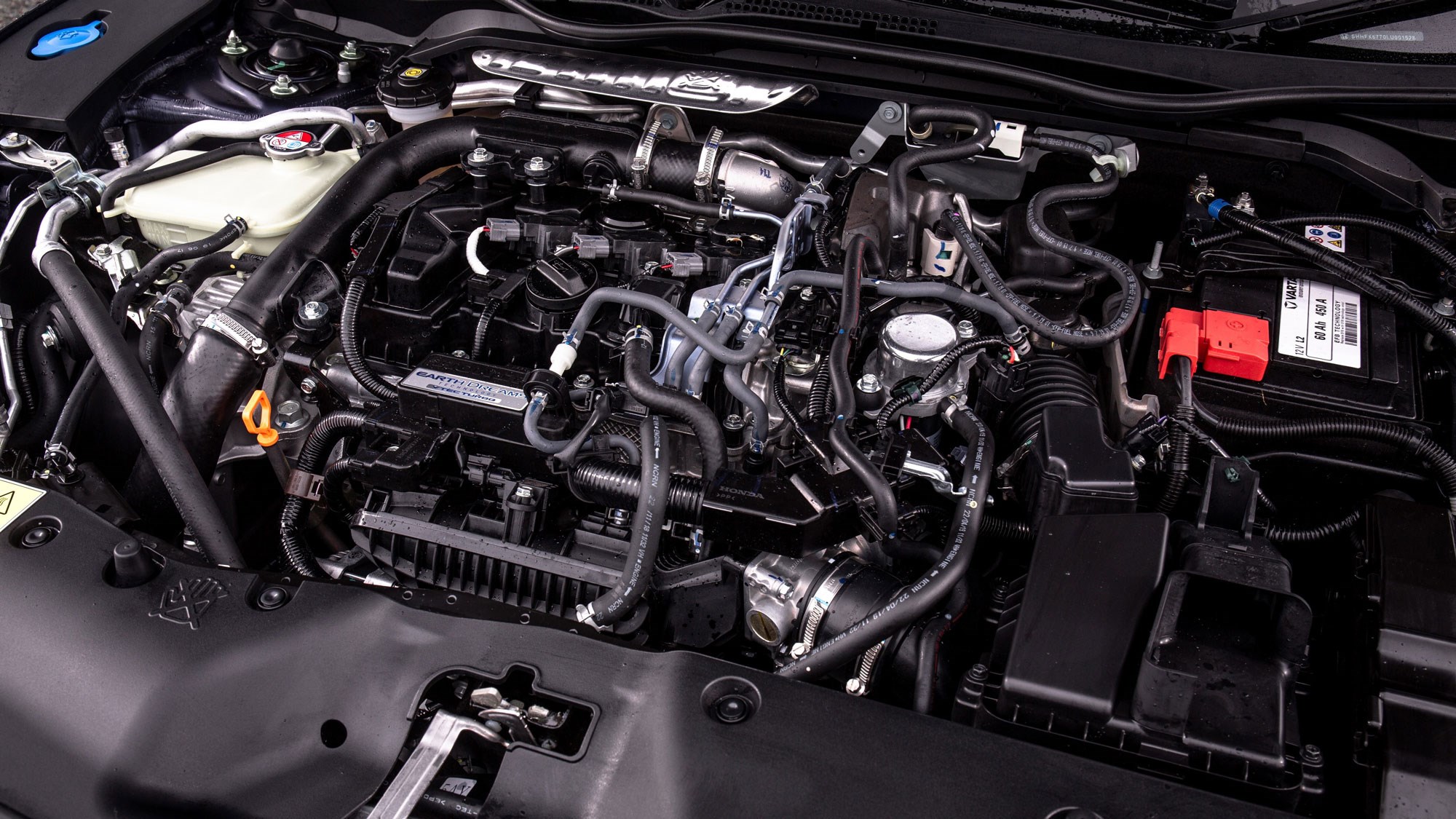
What's more telling is what hasn't changed. You still get the same narrow but brilliant engine lineup – a 126bhp 1.0-litre 3cyl, a 179bhp 1.5-litre 4cyl and a 116bhp 1.6-litre 4-cyl diesel. You still get the same sublime six-speed manual 'box, which now has a Type-R aping spherical knob in EX Sport Line trim.
The rest of the interior's virtually unchanged, too, which means loads of space for four six-footers and a cavernous boot. It's not quite Skoda Octavia levels of space in here, but you won't be disappointed coming from a Golf or Focus.
Does Sport Line actually make it sportier?
Yes, slightly. After all, despite its dynamic looks, the Civic's always been more biased towards comfort. Sport Line doesn't bring any dynamic changes as such, but it rides on big alloy wheels and features the same two-mode adaptive dampers as other top-spec models, so it's as racy as the Civic gets outside of the Type R.
Other than that, it's business as usual. The chassis is still a real highlight of the Civic – not as engaging overall as a Ford Focus, but still really good fun to stick into a corner. The driving position is utterly perfect too, with loads of adjustment and a nice low seat.
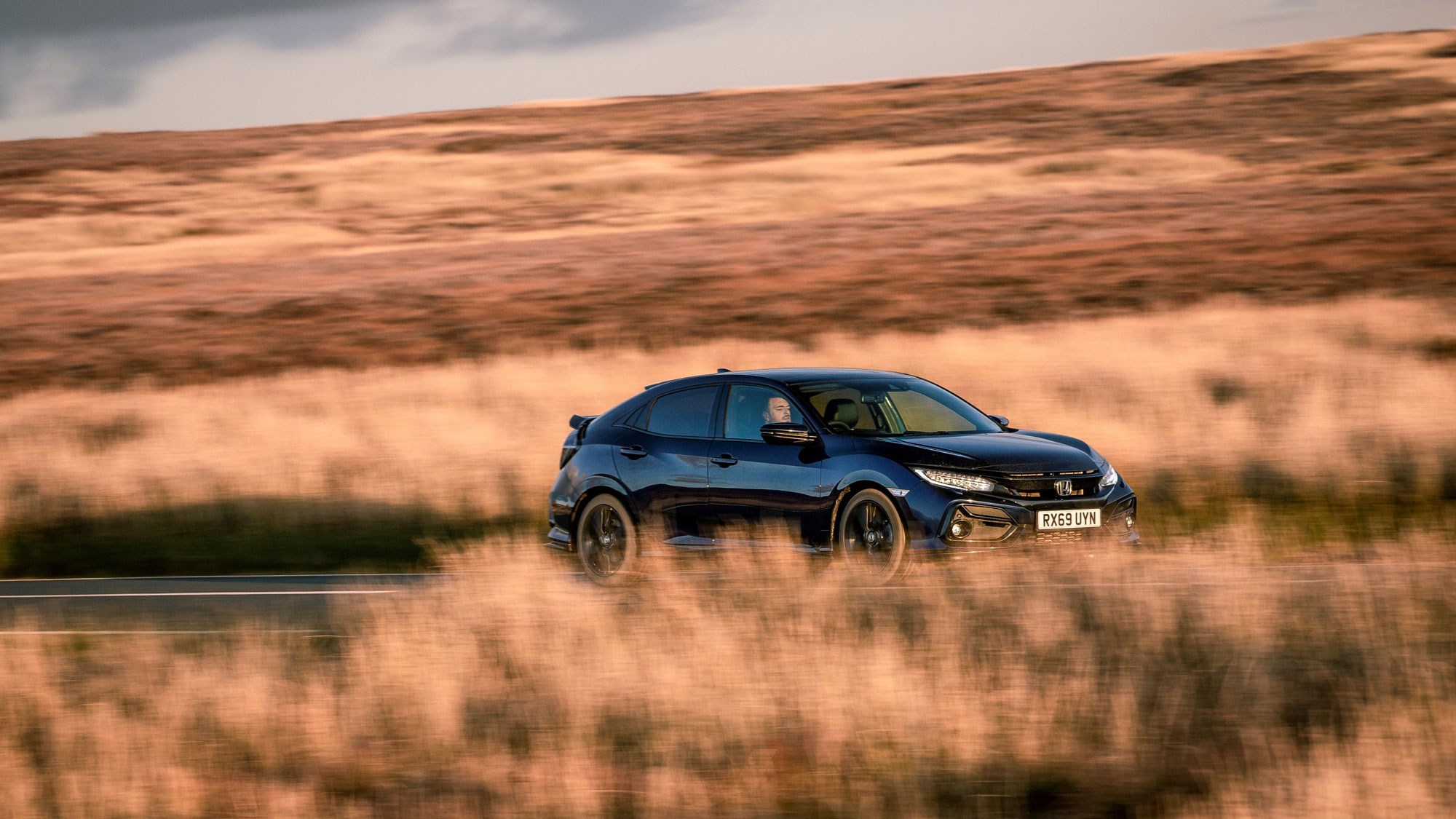
Despite this a near perfect-balance is struck when it comes to ride comfort. This Civic's a large car with a long wheelbase, and as such it's able to ride terrible roads with consummate ease. It rides superbly on the motorway too, without sacrificing too much to body lean. In fact, all the adaptive dampers do is make it less comfortable – there's no point engaging them.
What about that engine?
You'll still want the Type R or at least the 180bhp 1.5-litre if you want to make rapid progress, but for most the 1.0-litre triple is perfectly adequate. It belies its small size with a rorty tone (verging on plain noisy at times) and decent slug of low-end torque. You'll be changing ratio fairly often, but that's no chore with the six-speed 'box.
A heavy flywheel takes some enjoyment away – it bogs down the engine response, so it's slow to lose revs, making for jerky low-speed progress. It hits back with good efficiency.
Anything to avoid?
It probably won't surprise you that we recommend avoiding the automatic gearbox. Diesel models were previously available with a nine-speed torque converter – this has been dropped, and now your only automatic option is the CVT on either 1.0-litre or 1.5-litre petrols.
It's dire. Don't torture yourself. The CVT's approach to progress seems to be to pull the engine to 3,000 revs as soon as possible (coincidentally, the noisiest part of the rev range) and keep it there come hell or high water, regardless of what the accelerator pedal is asking for.
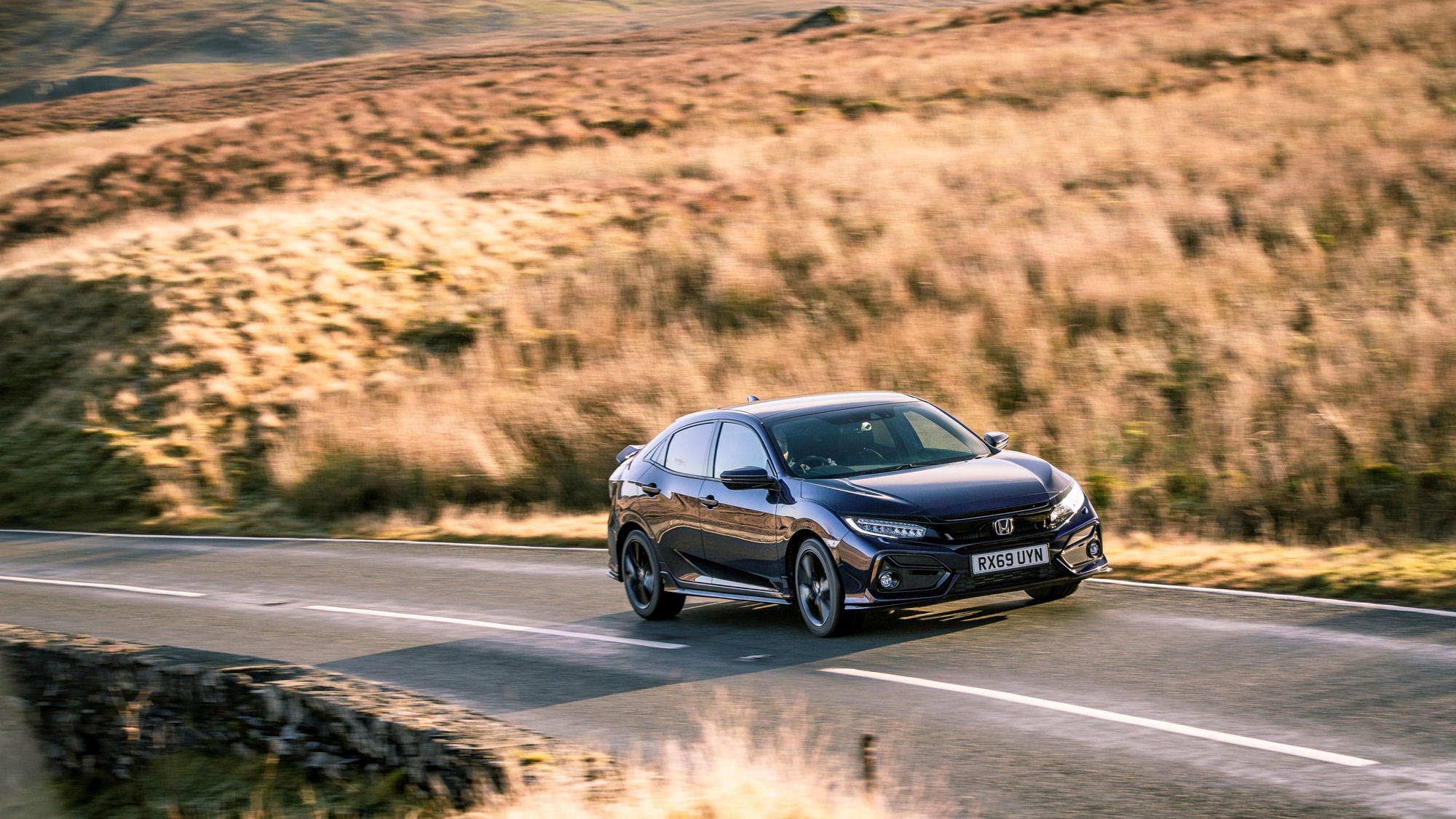
WLTP efficiency is improved but in the real world we were struggling to best 40mpg. Put simply, it's not worth the pain. If you need an auto gearbox in a car of this size, get yourself a VW Golf with a DSG or a Ford Focus or Mazda 3 with a torque converter.
There's also little point going any higher than EX Sport Line in the range. With dual-zone climate, touchscreen infotainment, heated seats, a full suite of safety aids and LED lights, there's nothing missing that you could find further up. In fact, unless the body kit really attracts you, maybe just stick to EX…
Verdict
The facelift's definitely a bit half-baked, but the Civic was a good car before it and it's still a good car after. The improvements made, however small, do make a difference – the volume knob, for example, is long overdue. We'd still like to see the CVT gearbox and the infotainment system replaced, but stick to what the Civic's good at and it really does make a case for itself even against the might of this crowded class.
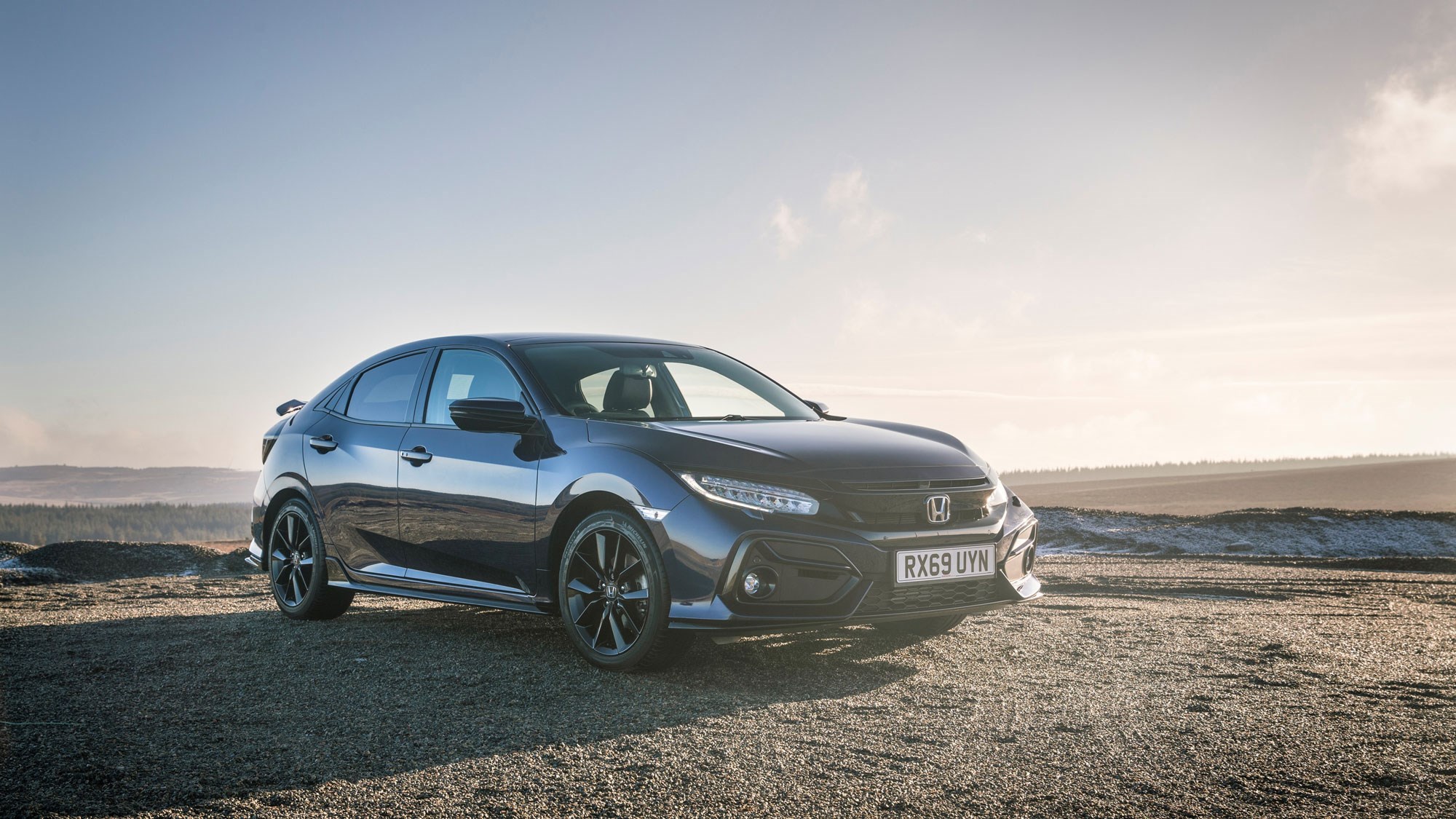
The typical good Honda dealership experience and exemplary reliability should definitely stand the Civic in good stead among private buyers, though Honda's finance packages aren't particularly competitive for those used to chopping and changing their PCP deals with regularity. Would we recommend it against the brilliant Focus and Golf? Not quite – but it runs them closer than you'd think. We reckon it's well worth a look.
Source: https://www.carmagazine.co.uk/car-reviews/honda/civic-hatchback/
